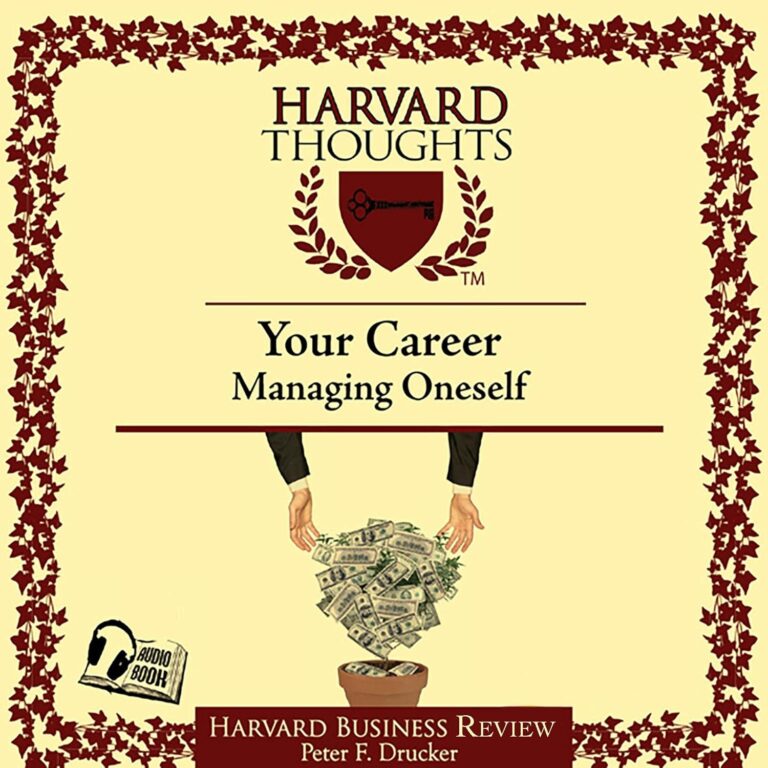Price: $0.00
(as of Dec 17, 2024 17:35:50 UTC – Details)

“Success in the knowledge economy comes to those who know themselves – their strengths, their values, and how they best perform.” -Peter F. Drucker
Throughout history, people had little need to manage their careers – they were born into their stations in life or, in the recent past, they relied on their companies to chart their career paths. But times have drastically changed. Today we must all learn to manage ourselves.
What does that mean? As Peter Drucker tells us in this seminal article, first published in 1999, it means we have to learn to develop ourselves. We have to place ourselves where we can make the greatest contribution to our organizations and communities. And we have to stay mentally alert and engaged during a 50-year working life, which means knowing how and when to change the work we do.
It may seem obvious that people achieve results by doing what they are good at and by working in ways that fit their abilities. But, Drucker says, very few people actually know – let alone take advantage of – their fundamental strengths.
He challenges each of us to ask ourselves, “What are my strengths? How do I perform? What are my values? Where do I belong? What should my contribution be?”
Don’t try to change yourself, Drucker cautions. Instead, concentrate on improving the skills you have and accepting assignments that are tailored to your individual way of working. If you do that, you can transform yourself from an ordinary worker into an outstanding performer.
Today’s successful careers are not planned out in advance. They develop when people are prepared for opportunities because they have asked themselves those questions and have rigorously assessed their unique characteristics.
This Audiobook has 10 Tracks. 1. Introduction. 2. What are My Strengths? 3. How Do I Perform? 4. How Do I Learn? 5. What Are My Values? 6. Where Do I Belong? 7. What Should I Contribute? 8. Responsibility for Relationships. 9. The Second Half of Your
This post is exclusively published on eduexpertisehub.com
